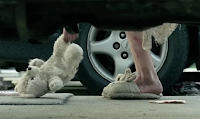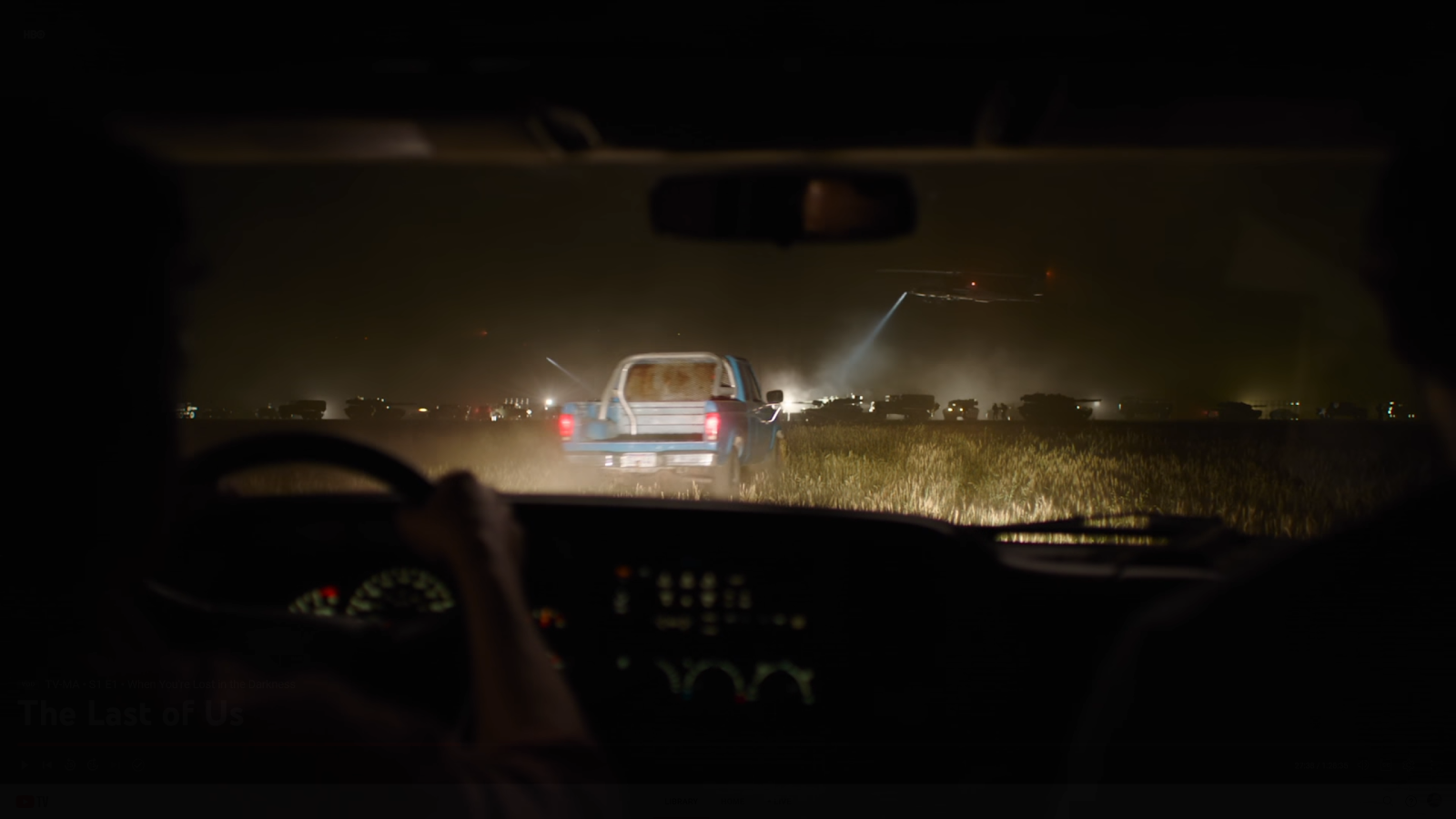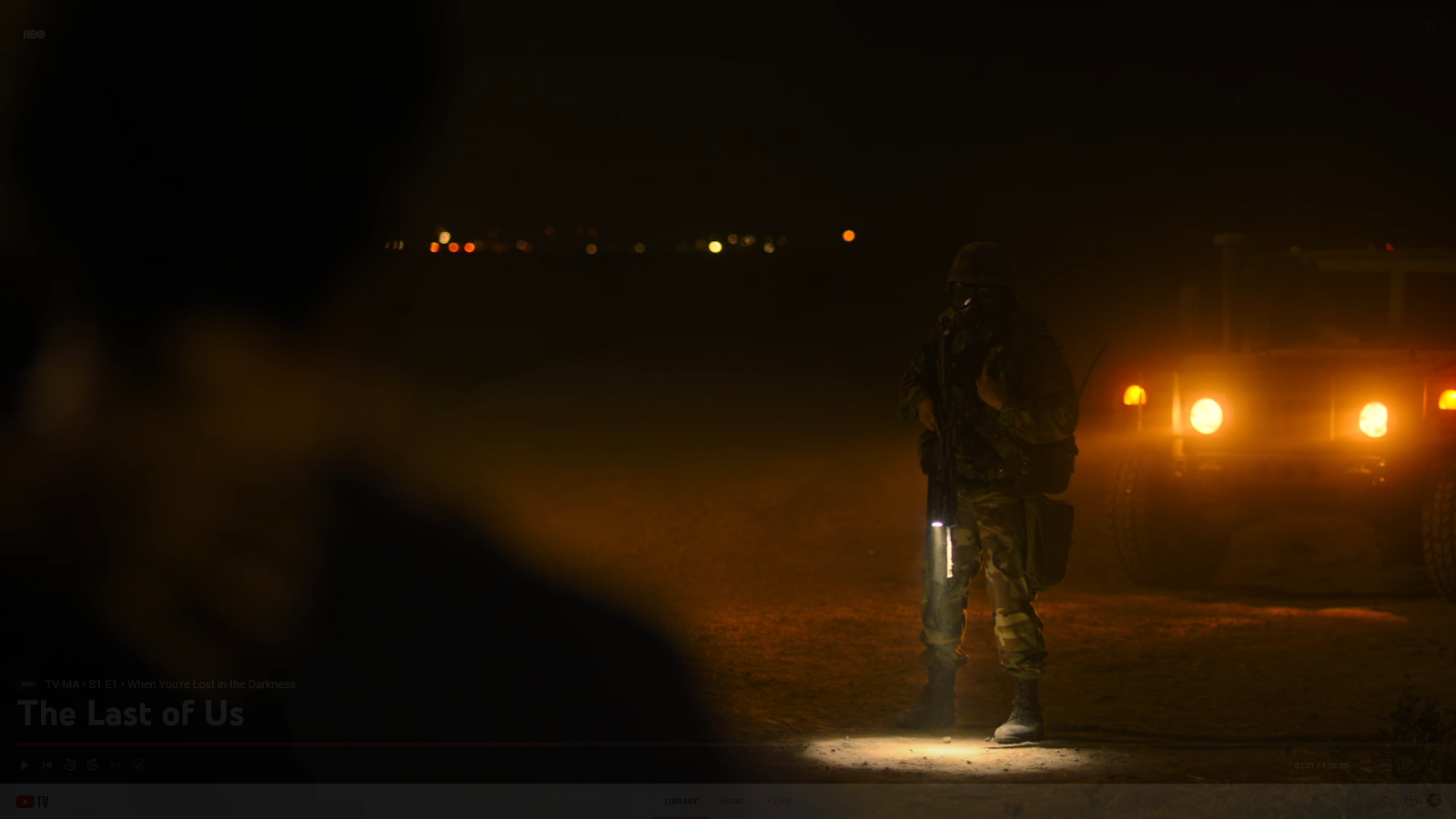|
|
⬇️Listen Now⬇️ |
| ⬆️Tap the above graphic⬆️ to listen to this episode in your favorite Podcasts App |
BEYOND #TheWalkingDead UNIVERSE, we go #LIVE just after #HBO's #TLoU, featuring #PedroPascal & #BellaRamsey! We'll be giving our own initial takes, as well as your own. Some of us have played the #videogames from where the source material is derived, but most of us haven't, so there should be a decent mix of judging the show on its merits while at least gleaning some #EasterEggs into the original #videogame series.
Considering this is a #Livestreamed episode, there's no unedited episode recording available; however, consider at least following either our Patreon or Ko-fi accounts so you don't miss out on future recordings: recordings are FREE to attend, but schedules aren't posted on Social Media. If you'd like to support this episode, tip us at Ko-fi.com/SQUAWKINGDEAD or join a membership tier on either Ko-fi or Patreon for as little as $1!
| David Cameo: | |
| Sherrandy Swift: | |
| Bridget Mason-Gray: |
- Check out Brian Castrillo's new Facebook Group dedicated to The Last of Us series on HBO
- The first season will comprise of 9 episodes. Check out this tweet thread we posted a few days after we published this episode for some behind-the-scenes cross-promotion for the upcoming video game release on Steam
We discussed the #SeriesPremiere of #TheLastOfUs on #HBO right after it premiered, Sunday night.https://t.co/JTlviCEX0L
— SQUAWKING DEAD (@SQUAWKING_DEAD) January 18, 2023
During our #podcast, I asked whether at least the 1st part was available to play on #Steam and we all assumed it was.
It isn't…
…however…
(🧵 thread 👇) - Bridget attempts to play the video game in order to be able to relay the game-to-screen easter eggs, parallels, and call-backs, but barely made it past what the television series premiere covered. She's also terrified of Zombie-based video games, as opposed to movies & television series. Her motto? Quitters always win.
- Takeerah mentions that the TV Series plans to go beyond the video games.
- Kirsten Acuna's impression of the entire first season of HBO's The Last of Us
So I guess I’m going to be the only one to say it, but #TheLastofUs is just fine. It’s aggressively average.
— Kirsten (@KirstenAcuna) January 11, 2023
My thoughts after watching all 9 eps:https://t.co/QXPdDVycdI - …but you don't have to take her word for it: we're going to give you our own take in our usual, mostly positive, value-based spin, while welcoming your own insights, thoughts, and feelings.
- Throughout our episode coverage, Bridget and the audience point out that - especially in the flashback to 2003 - most scenes and dialog were shot-for-shot from the video game.
- The first scene in present day 2023, with the child roaming the post infected apocalypse, reminded us a lot of the Teddy Bear Girl walker from The Walking Dead pilot.
- Bridget takes a moment to explain that the game starts off in 2013 and time-jumps to 2033, while the TV series starts in 2003 to time-jump to 2023 in order to align ourselves with what we went through the last few years throughout our own pandemic.
- Sherrandy loved the 1968 talk show flashback scene with Dr. Neuman, who explained that the most devastating pandemic would be that of a parasitic fungal infection that could affect living humans. The actor who played him, John Hannah, was also in the movie Sliding Doors, which got her thinking throughout her watch whether things could've turned out differently had one thing changed.
- Along with Sherrandy, there were quite a few people who knew nothing about the video game from which the series was sourced, which was a real treat. Unlike Dave (who is a soulless analyst), many folks jumped and screamed throughout their watch (especially in the 2003 scenes).
- On the note of the talk show scene from 1968, the filmcraft of Dr. Neuman explaining how the fungus parasitizes its host while the camera cuts to many points of view from the transfixed audience, who's attention is also hijacked by the show's guest, was super brilliant. There was also a conscious effort to include watches and clocks throughout this episode, but to what end? What did you make of that?
- In 2023, Fedra is clearly in charge, while The Fireflies rebel against their strict, authoritarian measures. Will the show find a way to set the audience on their haunches for siding with the freedom-fighters? We take a moment to compare this scenario to TWD's The Commonwealth, though that debate was a lot more difficult.
- Interestingly enough, the TV series will not use spores as the transmission mechanism for the Cordyceps infection. Check out this article from Comicbook.com on why that was (TL;DR: masks covering actors' faces). Thus keeping the series a lot closer to what TWD fans are used to, making the infection mechanism a lot more visually terrifying, especially the scenes with the old woman, next door.
- This brings us to the first reveal of what a longer-term, albeit dead, infected person would look like on the show and what else, outside the mouth tendrils, might be a means for transmission.
- Krystal Jordan, like many of us, was heartbroken about Sarah Miller's death and wishes she could've survived; however, had she survived, it would've removed the driving force for Joel Miller to protect Ellie Williams as fiercely as he does - which we get to see a little bit of by the end of the pilot.
- Felicia Wray makes a great comparison, as it pertains to the post-apocalyptic ruin and system, to Children of Men.
- Lois Martin asks a great question, which Takeerah swiftly answers: how did the old woman even become infected? She was constantly being driven to the city for treatment and the infection seemed to have broken out from heavily populated areas. This also gives Bridget the opportunity to discuss the poster on the wall at the Fedra border describing the stages of infection and the timeframes within each stage. Ellie is clearly infected, but it's either really slow or she is immune.
- This episode is a massive Fringe (with Anna Torv playing Theresa "Tess" Servopoulos) & Game of Thrones (Pedro Pascal as Joel & Bella Ramsey as Ellie) reunion. Oh and Big Head from Silicon Valley as the host of the 1968 talk show (Joshua Max Brener).
- We take a moment to talk about Anna Torv's Tess - how awesome a badass she is - and how (Fringe co-star) Joshua Jackson's eternal side-quest is to make Dave's life a living hell.
- The song that plays at the end of this episode is Depeche Mode's Never Let Me Down Again, which means there's trouble (being an 80s song). Dave waxes on his lack of 80s music, growing up.
- Dave also remarks on how, after binging a bunch of anime (like Tokyo Ghoul), though there's no lack of action, the show still finds time to slow the pace enough for it to continue to convey emotions and tell story. Bridget chimes in that this is a lot like the video game. Not a lot happens in terms of plot this episode, which would normally generate complaints, but it's so rich with backstory and establishing our characters' motivations that most people didn't even notice.
- So why doesn't the show just come out and say what we're all assuming: does Ellie have the cure?
- Speaking of (poorly and purposefully?) burying the lede, another place where the show differs from the game is giving the audience a little more of a romantic relationship between Tess & Joel. The series does find a way of expanding on the story in some places, too, by showing us scenes that weren't present in the video games, such as the conflict between them and Robert and making their smuggling more about drugs and a car battery, rather than guns.
- The only absolute similarity between the video games is that Marlene (leader of The Fireflies) is played by the same actor in the video game series: Merle Dandridge. Where the show differs a little is giving Marlene a personal connection to Ellie, having rescued and delivered her to the Fedra academy when her parents died.
- Lois compares the folks hanging in Fedra's square to The Hunger Games, which quickly establishes the hardship under their purview.
- Further evidence that they may subvert our expectations of Ellie having the cure: the look-ahead teasers for the season show her scratching/rubbing the area of infection. Do you find that as frustrating?
- Bridget takes a moment to explain smaller moments where the show differs from or is shot-for-shot in the game.
- Game: Millers don't know or are never seen with the elderly neighbors; Series: Joel putting down the old lady with the wrench, dropping it, and hugging Ellie was exactly like in the game.
- Game: The getaway sequences and dialog, inside the truck, were exactly the same, save for...; Series: instead of being T-boned by a car, downtown, the falling airplanes cause them to crash.
- Game: The manner in which Sarah is shot and dies is the same; Series: Bridget felt that the soldier in the video game was more reluctant to shoot The Millers.
- Game: Escaping the city was almost shot-for-shot with the series; Series: There's no established relationship with the soldier Joel puts down in the game, whereas we see Joel deal him drugs earlier on in the episode.
- Whether similar or different from the video games, it hasn't taken away from the series, thus far. This is something we're conscious of and is very similar to the effect the comic book had on viewers of The Walking Dead: many didn't take kindly to the way the tv series deviated/diverged. We support creatives taking poetic license and artistic liberties, especially if it enhances the story, but what do you think?
- Dave explains how, while covering TWDU during the COVID-19 Pandemic, he felt he needed to establish stronger bonds with friends nearby in the event things got worse. After watching TLoU, the show made him feel bolder and more motivated to find farther flung friends. TLoU, thus far, hasn't given us the impression that things are so hopeless as to be impossible in the way TWDU has for more than a decade. Bridget's takeaway was that we need SQUAWKING Satellite phones and bug-out bags.
- Do you think it's possible that Fedra's equipment at the border incorrectly detects everyone as infected to control their population? Do you think the show will find a way to shift our negative impression of Fedra into at least a grey area, much like TWD?
- Do you think everyone on this show is a little shady, if not a little annoying? Yes, even Ellie. It's not a bad thing; everyone has their quirks.
- Another interesting divergence from the video games is how Joel deals pharmaceuticals to get by in the future, which establishes an interesting parallel when Sarah tells him that she sells hardcore drugs to fix his (now permanently broken) watch.
- Continuing the theme of determination and hope the show seems to impress upon us how - as much as Joel hates Fedra - along with his daytime corpse-disposal and drug-and-smuggling side-hustle (rather than giving up and staying in bed), he is absolutely driven to find a way to get to Tommy Miller, who has been missing for weeks after going out on a run. Even The Fireflies have abandoned their normal resistance hustle to smuggle Ellie, whom they assume has the cure. Everyone seems driven and tries to claw their way into something better, rather than feel beaten-down and hopeless.
- What is Marlene's core motivation in having Joel & Tess smuggle Ellie out of town? Is it the trope of prohibiting her from being studied by Fedra, who might withhold the cure for some and not for all? Bridget mentions that Ellie would immediately test negative and be put down by Fedra before she had a chance to explain that the infection never overwhelmed her.
- Though Joel exhibits some TWD traits (survival over everything), at first, it may become a lot more clear that his motivations are to protect (found) family over any cure Ellie may or may not have.
- What made Sarah's death so heartbreaking for those who never played the video games (even if you absolutely know - from reading plot synopses - that she is supposed to die), is that it breaks the trope of someone - especially a child - surviving lethal injury. Sarah's reaction of flailing and repeatedly shouting in pain, just before her death, even makes it seem as though she might.
- Dave's knowledge of Arabic helped to translate the subtitle-free scene between the Lone Star watch repairman & his wife. It's nothing particularly important, since all she says is, "Have you been listening? I was speaking with my sister on the phone and you can't even imagine what's happening." "Well finish-up and give [the watch] to her, already!"
- Sherrandy, now in the audience (internet issues), makes a comparison between Ignacio "Nacho" Varga's death (in Better Call Saul) to Sarah's in that you can't believe it happened (even if you know, for sure, it's going to happen).
- Dave hammers the point of how long The Walking Dead has beaten the hope right out of us, every time, where The Last of Us hasn't really done that yet, even though it has successfully painted a pretty bleak picture (especially by placing the present-day timeline alongside our own, having just emerged from a pandemic).
- What makes HBO's adaptation even more realistic than placing it our own timeline is a more realistic way the story creates (what are effectively) zombies, rather than the distinct lack of origin TWD fails to provide - which isn't a bad thing: just like the lack of flashbacks, TWD purposefully shifted the focus away from origins (of the infection or people, in general) and emphasized, strongly, that who you are, now, is more important than who you were or what caused or eradicates the zombie outbreak.
- One thing seems to be evident: even though this show makes us want to find one another, the need to tell each other to "just stay away" is still prevalent... 😅
- Another post-apocalyptic story to watch is Station Eleven on HBO Max. Takeerah compares Joel to Shane Walsh, from The Walking Dead. Also, don't say the word "guns" on YouTube. And, for the love of all that is holy, there are so many cool shows to watch other than The Walking Dead (perhaps better?).
⭐⭐🌟Like What We Do? Buy Us a Coffee!🌟⭐⭐














































No comments:
Post a Comment